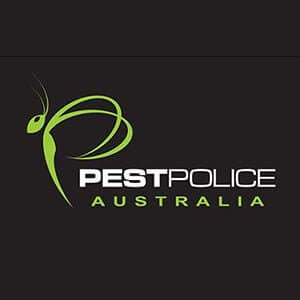Seen ants roaming around the kitchen? If you see one crawling around aimlessly in your kitchen, chances are there are thousands more lurking elsewhere. After all, ants are social insects that live in colonies.
They also thrive everywhere and can be a nuisance to humans. Although there are more threatening pests than them, these tiny creatures have a horrible habit of getting into practically everything, including your pantry cabinets and food containers. Controlling them means keeping your food storage from getting contaminated.
The two most common species in the country are odorous house ants and carpenter ants, both of which tend to go indoors during the warmer months.
Basic Ant Anatomy
When you’re up against ants, you have to first understand what makes them tick.
At their basic, ants have six legs, two antennae, and a slender body with a segmented abdomen. They have three main body parts: the head, the thorax, and abdomen. The head has two large eyes, one on each side of the head; mandibles for chewing food; and two antennae for sensing smells or tastes in the air or on surfaces. The thorax is where most of the muscles are located for moving around; it also has six legs attached to it. Meanwhile, the abdomen is where most of the organs are located, including their reproductive organs.
By their lonesome, ants aren’t much of a threat. But ants are an excellent example of insects that work like machinery together. It’s worth noting that ants live for two simple purposes: to grow the colony and protect the queen. For the most part, they only require food and water to fulfill those roles. That’s why you’ll find ants in your kitchen more often than in other household areas. Ants constantly need to gather food while they aren’t expanding the colony or protecting and grooming eggs, after all.
Ants You Find at Home
The ants you find rummaging through your kitchen will often be either of these two:
-
Odorous House Ants
When crushed, the pungent, rotten, coconut-like smell that the odorous house ant emits gives it its name. These little brown ants measure between one-sixteenth and one-eighth of an inch in length. They enjoy sweets, and honeydew is one of their favourites.
Odorous house ants nest near indoor moisture sources, such as in wall gaps near hot water pipes, heaters, beneath leaking fixtures, and inside termite-damaged wood.
Outside, odorous ants might be found in exposed soil or beneath firewood stacks. Moisture is what attracts the odorous ants. Eliminate standing water to keep them away. Tree branches and other plants should be pruned away from the house. These branches are sometimes used by odorous ants to access the house.
While they are not harmful to the public’s health, they can contaminate food and should be avoided.
-
Carpenter Ants
Carpenter ants acquire their name from the way they build their nests, excavating the wood and creating smooth tunnels within it. Carpenter ants do not eat wood; instead, they dig and chew it to build nests. Carpenter ants range in size from 10-15mm in length. Carpenter ants are commonly black, but they can also be a mix of black and red or totally black, red, or brown.
Aside from the presence of workers and/or swarmers, the emergence of small openings on the surface of the wood is the sole external sign of a carpenter ant infestation. The ants use them to discharge debris, which includes sawdust-like shavings, insulation fragments, and insect body parts.
Carpenter ants prefer to eat fungus-softened wood, which is typically linked to moisture issues, so keep an eye out for excess moisture and soft, decaying wood around the house.
How to Get Rid of Ants Naturally
Let’s face it: having ants in your home can be a real hassle. It’s not only annoying to have ants running around, but a colony of ants can also cause significant harm. Having ants in your home is quite unsanitary, too. Humans can be bitten by some ant species and our food can unquestionably be contaminated by ants in the house. They carry bacteria that can be spread through food or an open wound, after all.
A lot of us hate the way ants invade our homes. They dwell in our house as if it were their own. Luckily, various methods may help with ant control. We have some great natural home remedies that you can try to keep ants out.
-
White Vinegar
Ants can’t bear the smell of white vinegar. Mix equal parts water and white vinegar in a solution. You can add a few drops of essential oil, then shake it well.
This solution should be stored and sprinkled at the points where the ants enter. This method may not kill the ants, but it will certainly keep them out of the no-entry zone. Spray it on your window sills, doors, and other areas where ants are known to swarm.
-
Lemons
Lemon juice, like vinegar, appears to damage the scent trails that ants follow. Squeeze a lemon or place lemon peels where the ants are entering. You can also clean your floors using water that has been diluted with lemon juice. Since ants hate the smell of lemon juice, they will stay away.
Make an all-purpose spray by combining one part lemon juice with three parts water. Spray the lemon solution around your home’s entryways and perimeter and any spots where ants are visible.
-
Oranges
Oranges are similar to lemons because they also repel ants from your home. To eliminate ants, mix one cup of warm water with a few orange peels to make a paste. Apply this paste to ant access spots and wipe it clean afterwards. Orange peels can also be placed on the kitchen surface or wherever you believe the ants are entering from. It works as a natural ant repellent, not only keeping them at bay, but also may keep them away.
-
Peppermint
Peppermint has natural insect repellent properties. Peppermint has a strong odour that ants hate and will avoid areas where it is present. Peppermint has a pungent scent that ants can’t stand. Thus it keeps them out of the house. Sprinkle a mixture of 10 drops of peppermint essential oil, and a cup of water anywhere ants are found.
-
Peppers
Ants despise cayenne pepper and black pepper. You can also mix a pepper-water solution and sprinkle it around the entryway. The pepper wouldn’t kill the ants but would keep them away from your home. Make sure the area where the pepper solution will be sprayed is clean.
-
Cinnamon
Cinnamon is an excellent ant-killing agent. An ant suffocates and dies after inhaling cinnamon. Ground cinnamon can be sprinkled on the ants’ path or around the opening of an anthill. Cinnamon essential oil is also effective at repelling ants. Spray ant trails around doors, windows, and cracks with a mixture of cinnamon oil and water.
This is a good way to keep your house smelling fresh and earthy as well. Cinnamon is frequently recommended as a DIY ant control solution.
-
Salt
Spreading salt near nooks and corners where ants enter the house will deter them. Table salt is one of the most effective and affordable natural ant repellents. Use regular table salt instead of health-promoting rock salt. Simply bring water to a boil and add a significant amount of salt, constantly stirring until it dissolves. Fill a spray bottle with the mixture and spray where you think ants enter.
How to Prevent Ants from Coming Back
The ant is commonly one of the most problematic and annoying household pests. Fortunately, there are a number of simple and efficient solutions for keeping ants out. Simply follow these simple tips and you may find yourself living in an ant-free home.
Always Keep Your Home Surfaces Clean
What is something that no creature can exist without? Of course, food! While you and your family need to eat, this does not mean it’s okay to leave morsels around the house as this is precisely what ants seek! The most important thing you can do to keep ants out of your house is to keep all the surfaces clean and store food products in sealed containers.
Seal Your Home’s Cracks and Possible Entryways
It’s time to start stopping ants from entering your home after you’ve finished eliminating food items and restricting access to them. Act as your own scout and look for spots in and around your house that could be ant entry points. Many of the apparent entrances for ants can be eliminated by caulking openings around windows and doors and the foundation of your property. These sealants will deteriorate with time and exposure to the environment, so keep an eye on them and reapply as needed.
Remove Ant Trails
If you already have an ant problem, it’s critical to figure out where they’re coming from and clear their paths to keep them from entering your home. A simple vinegar/water mixture applied down the length of the ant trail can upset the ants and force them to seek a new food source.
Ants make scent trails for other ants to follow, and if one track is found, there are likely to be more. When spraying ant trails, keep an eye out for deviations from the route that lead to other parts of your house and spray them down as well.
Place Ant Baits in and Around Active Areas
If you’ve noticed scout ants in your home, you should start putting bait traps in the spots where you’ve seen them. You don’t have to kill the scouts right away. While these baits may momentarily attract more ants, their toxic baits will be brought back to the colony and may assist in eliminating the colony as a whole, rather than just the few ants that found their way into your home.
Professionals Know How to Keep Ants Away Best
If a few ants turn into an army and you’ve done everything, you could have an ant infestation on your hands. And if you’re not fond of having your house smelling like pie, including the bathroom, call on our professional pest control team! We can recognise pest ant species and eliminate them safely and effectively.
If you are looking for a reliable pest control company in Melbourne, know that you can trust us to meet your needs. We provide top-quality pest control services. Book our pest control and inspection for a prompt, efficient, reliable resolution to your pest problems, incorporating only environmentally friendly products and solutions as we do!

